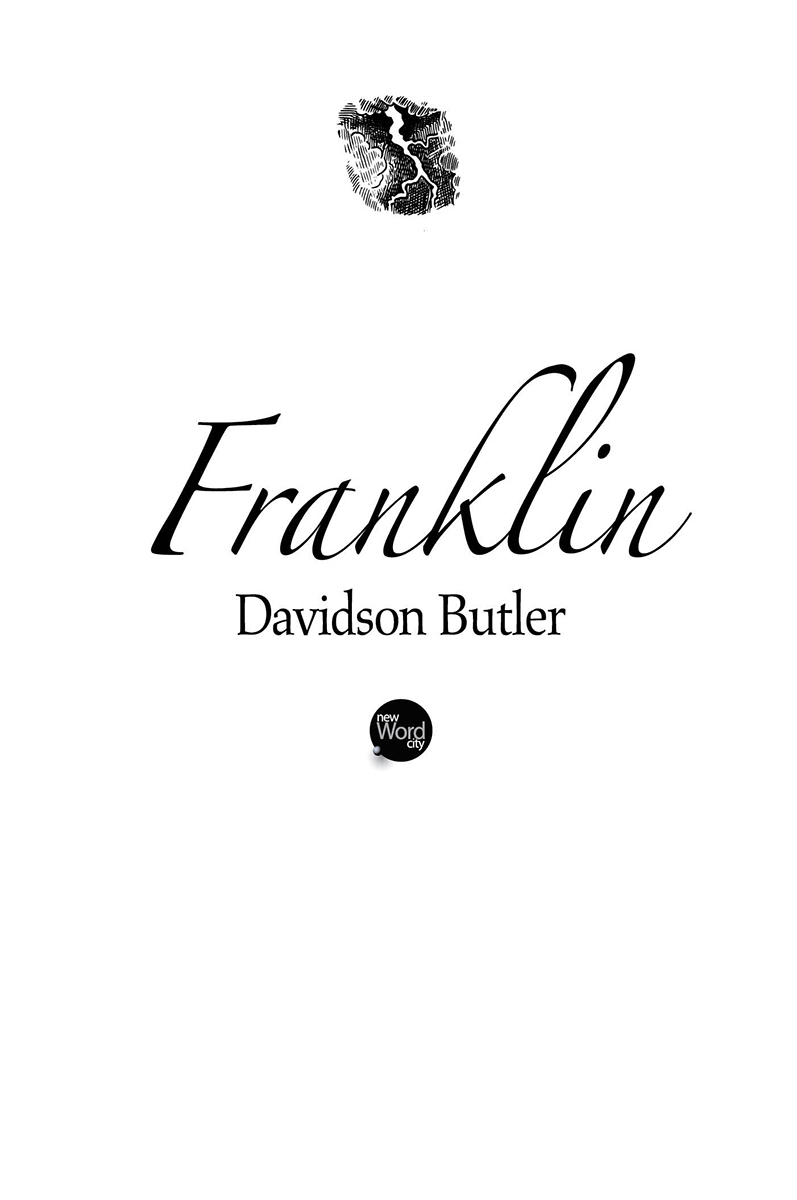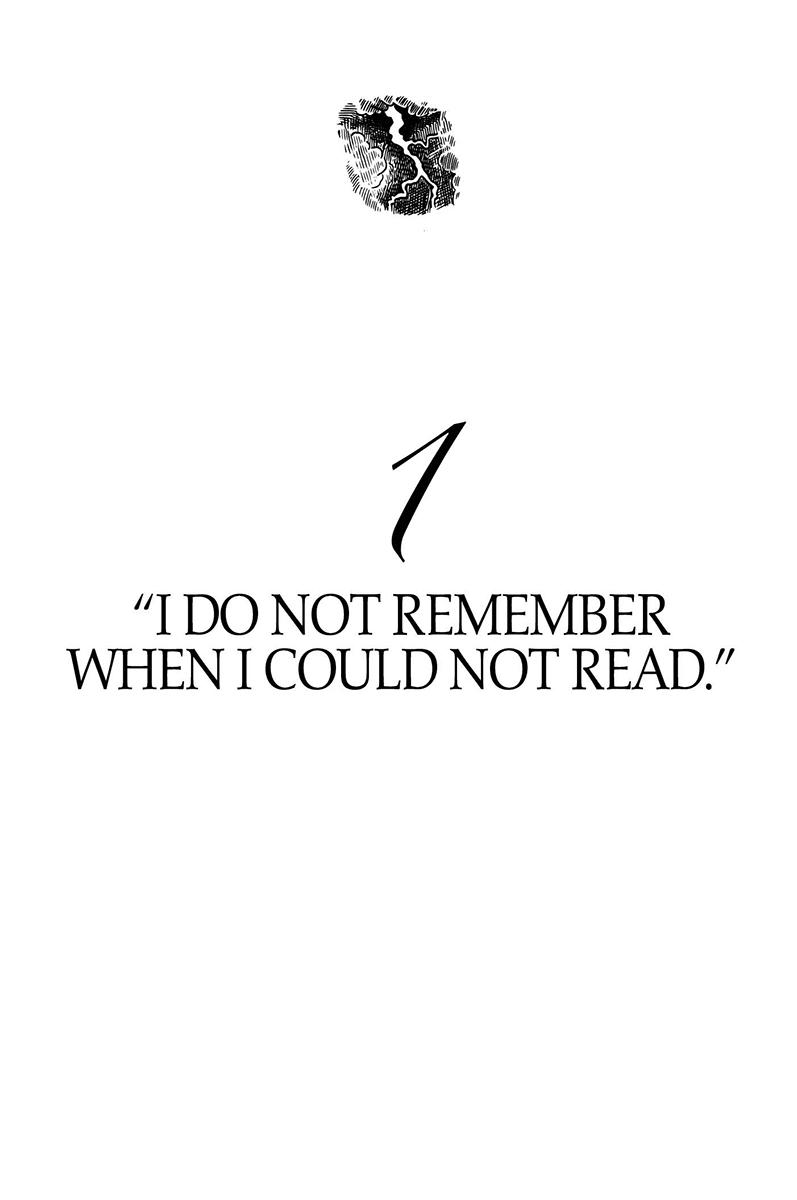Franklin




Benjamin Franklin's father
Josiah
had a large family - four children with his first wife and ten with his second. Benjamin remembered “thirteen sitting at one time at his table.” He was the youngest son and had two younger sisters. Josiah could not afford to send Benjamin to college, so the boy went to a school that offered only arithmetic and writing.
When Benjamin was ten, Josiah put him to work in the family candle and soap business. Benjamin cut wicks, filled the dipping mold, worked behind the counter, and ran errands. He soon realized he “disliked the trade.”
Benjamin implored his father to allow him to become a sailor. Josiah, however, refused â one of his older sons had perished at sea. Josiah urged Benjamin to choose another occupation, taking the boy around Boston to let him see bricklayers, carpenters, and other tradesmen. Though their skill fascinated Benjamin, he saw no trade that interested him.
Swimming, meanwhile, did interest him. Benjamin learned to swim almost as soon as he could walk, and he later experimented with ways to swim faster: “I made two oval palettes, each about ten inches long and six broad, with a hole for the thumb, in order to retain it fast in the palm of my hand. They much resembled a painter's palettes. In swimming I pushed the edges of these forward, and I struck the water with their flat surfaces, and I drew them back . . . I swam faster by means of these palettes, but they fatigued my wrists. I also fitted to the soles of my feet a kind of sandals; but I was not satisfied with them because I observed that the stroke is partly given by the inside of the feet and the ankles, and not entirely with the soles of the feet. . . .”
Later, he used a toy as a swimming aid. While flying a kite near a pond, Benjamin tied the kite string to a stake, took off his clothes, and jumped into the water. The kite continued to fly, and he decided to fly it and swim at the same time. He jumped out of the water, grabbed the string, and then jumped back in. Rolling onto his back, he held the string as the kite became a sail. He asked his friend to take his clothes to other bank. “My kite . . . carried me quite over without the least fatigue and with the greatest pleasure imaginable,” he wrote. “I was only obliged occasionally to halt a little in my course, and resist its progress, when it appeared that by following too quick I lowered the kite too much.”
Benjamin was always the leader, although sometimes he got his friends into trouble. They enjoyed fishing for minnows on the edge of a marsh. It often became a “quagmire” into which they sank, muddying their clothes. Deciding they needed a wharf, Benjamin spotted stones intended for a new house near the marsh. In the evening, after the men working on the house went home, Benjamin and his friends hauled the stones to the marsh and built their “little wharf.” The next morning, the workmen discovered the stones missing, and they learned the identity of the thief. Benjamin's father lectured his son that “nothing was useful which was not honest.”
By then, Josiah had decided Benjamin would become a Boston printer like his older brother,
James Franklin
. So at the age of twelve, Benjamin was bound as an apprentice to his brother until he reached twenty-one. Benjamin learned how to set type and operate a printing press. In his spare time, he continued to read every book he could borrow or buy. “Often I sat up in my room reading the greatest part of the night,” he said.
Benjamin decided to become a writer. He liked poetry and wrote “little pieces” he showed James, who urged him to compose ballads. He penned two: “The Lighthouse Tragedy,” about the drowning of a ship's captain and his two daughters, and “A Sailor's Song,” about the capture of the pirate
Blackbeard
. James printed both and sent Benjamin out to sell copies. “The Lighthouse Tragedy” sold “wonderfully,” and Benjamin thought he would become an acclaimed poet. But Josiah told him his poetry was poor. Moreover, verse-makers were generally beggars. He encouraged Benjamin to write prose.
Around this time, Benjamin became friends with another young Bostonian, John Collins, also an avid reader. The boys liked to debate issues, sometimes putting their arguments into writing. When Josiah pointed out Benjamin's writing was inferior to Collins', Benjamin worked to improve. He found a copy of
The Spectator,
the English newspaper written by
Joseph Addison
and
Richard Steele
, and thought “the writing excellent.” He made notes on how each sentence was structured. He also tried to improve his vocabulary by turning
Spectator
essays into rhyme. To find a different sound for a rhyme, he was forced to use new words.
While struggling to improve his writing, Benjamin did not neglect other parts of his education. Ashamed of his failure to learn arithmetic, he bought a textbook and taught himself the essentials. He acquired another skill: After reading a book about
Socrates
by the Greek historian
Xenophon
, he decided he liked Socrates' way of arguing by asking questions. Dropping his habit of “abrupt contradiction and positive argumentation,” he pretended to be a “humble enquirer and doubter” and soon became “very artful and expert in drawing people even of superior knowledge into . . . difficulties out of which they could not extricate themselves.”
Meanwhile, James had begun to publish a newspaper,
The New England Courant.
Along with the news, he included essays. Sensing his brother was envious of his writing skill, Benjamin wrote an unsigned essay and slipped it under the door of the printing house. James showed the essay to some contributors, and Benjamin listened with “exquisite pleasure” while the men praised the quality of the writing and tried to guess the author's identity.
Under the name
Silence Dogood
, Franklin described himself as the widow of a country minister and commented on the manners and morals of New England. Mrs. Dogood's fourth essay was critical of Harvard College. Noting that most parents considered their finances instead of their children's aptitude in deciding whether to send them to this “temple of learning,” she observed that, as a result, at graduation “every beetle-scull seem'dwell satisfy'd with his own portion of learning, tho' perhaps he was e'en just as ignorant as ever.” After graduation, she lamented, “Some . . . took to merchandising, others to traveling, some to one thing, some to another, and some to nothing; and many . . . liv'd as poor as churchmice, being unable to dig, and asham'd to beg, and to live by their wits it was impossible.” No wonder so many became ministers, Mrs. Dogood concluded. All they had learned at Harvard was how to “carry themselves handsomely, and enter a room genteely (which might as well be acquir'd at a dancing school).” She urged parents not to be so “blind to their children's dulness, and insensible of the solidity of their sculls.”
Mrs. Dogood contributed fourteen essays to
The New England Courant
before Franklin confessed his identity to his brother. James was displeased. The brothers began quarreling and taking their disputes to their father. Josiah tended to favor Benjamin, so James settled arguments with his fists. Benjamin wanted his apprenticeship to end.
Benjamin's opportunity to leave his brother arrived a few months later. James criticized the Massachusetts Assembly and was imprisoned for a month. With his brother jailed, Benjamin ran the
Courant.
Eventually, James was released, but he was ordered to stop printing his paper. To circumvent this ruling, James transferred ownership to Benjamin. To make this act legal, he released Benjamin from his apprenticeship and had him sign a new indenture.
Soon, a new argument erupted between the brothers. James resorted to his fists. Benjamin, knowing James would not enforce the indenture he had signed, told his brother he considered himself free and quit his job. James warned other printers in Boston not to give Benjamin any work. Josiah disapproved of Benjamin's decision. Since Benjamin was only seventeen, his family legally could force him to stay in Boston. He decided to run away.
Benjamin's friend Collins arranged for him to set sail to New York. Benjamin sold some of his books to raise money, and in three days, he was 300 miles “from home . . . without the least recommendation to or knowledge of any person in the place.” Finding no work for printers, he moved to Philadelphia.
The trip was miserable. Storms turned a journey of two or three hours into thirty without food or water. The runaway trudged across central New Jersey on foot through rain, arriving in Philadelphia at 9 a.m. Sunday, filthy and exhausted. He bought bread and then went to church with some
Quakers
, falling asleep during their service. A friendly Quaker took him to the Crooked Billet Tavern on Water Street, where Benjamin rented a room and slept most of the day and night. The next morning, he sought work.
He found a part-time job with
Samuel Keimer
, whose printing equipment consisted of “an old shatter'd press” and one small worn-out font of English type. Keimer had a beard and long hair and wore dirty, tattered clothes. He lived in a house with no furniture.
Keimer liked to argue about religion, but he found Benjamin too much for him. “I us'd to work him so with my Socratic method,” Benjamin said, “and trepann'd him so often by questions apparently so distant from any point we had in hand and yet by degrees led to the point . . . that at last he grew ridiculously cautious and would hardly answer me the most common question without asking first, What do you intend to infer from that?” Keimer was so impressed with Benjamin that he asked him to help establish a new religion. Keimer proposed to preach the doctrines, and Benjamin would refute opponents.
Meanwhile, they found little printing. With money low, Benjamin suggested they become vegetarians. He had experimented with this diet in Boston and knew he could tolerate it. But Keimer was “a great glutton” and found the diet unendurable. Finally, Keimer could stand the meals no longer and ordered a roast pig. He invited Ben and two women to dine with him, but the neighborhood cook brought the pig before the guests arrived. Keimer, Ben said, ate the whole animal before they came.
Benjamin's brother-in-law, Robert Holmes, was captain of a vessel that traded between Boston and Delaware. Holmes heard Benjamin was in Philadelphia and wrote him a letter, urging him to return to Boston. Benjamin replied, and Holmes showed his letter to Pennsylvania Governor Sir
William Keith
, hoping he would urge the runaway to go home. Instead, Keith, impressed by Benjamin's writing skill, wanted to set up the young man as a printer in Philadelphia. Keith went to Keimer's shop and told Benjamin his intention. Delighted, Benjamin returned to Boston with a letter from Governor Keith, encouraging Josiah to loan his son money to set up a printing shop.
Josiah Franklin did not address the matter for days. Finally, he expressed his displeasure with the idea. To Benjamin's chagrin, Josiah wrote Keith, thanking him for the offer but declining to risk the money. The cost of equipping a small print shop was about £100.
Benjamin's brother, James, refused to rehire him, so Josiah gave the young man permission to return to Philadelphia. Josiah urged Benjamin to work hard and save money. By the time he was twenty-one, he ought to have enough to set himself up in business; if he “came near the matter,” Josiah would give him the rest.
Benjamin's friend, John Collins, decided to return to Philadelphia with him. Benjamin met Collins in New York. Benjamin was surprised to discover his friend was fond of gambling and brandy. He had been drunk every day since his arrival in New York. Benjamin was soon funding Collins' room and travel, and the two fought often.
The friendship ended one night in a fight between the two while on a rowboat. Collins was drunk and swung his fists at Benjamin. Benjamin nearly threw Collins overboard. After the incident, the pair barely spoke again. A few weeks later, Collins left for the West Indies to work as a tutor for the sons of a wealthy planter. Collins promised to repay his debts, “but I never heard of him after,” Benjamin said.
Meanwhile, Governor Keith remained determined to set Benjamin up as a printer. “Give me an inventory of the things necessary to be had from England,” he said, “and I will send for them. You shall repay me when you are able.”
Benjamin did as asked, but Keith had another idea. Why didn't Benjamin go to England and choose the equipment personally? He might be able to arrange with booksellers and stationers to import and sell their books and paper. The offer was irresistible - an opportunity to see London, the greatest city in the world. Benjamin accepted, unaware he had made his first serious mistake.
For some time, he had been seeing
Deborah Read
, daughter of a Philadelphia shopkeeper. They were in love and talking marriage, but the prospect of a long voyage made Benjamin delay marriage until he returned. He left Deborah heartbroken and sailed for England. Governor Keith assured Benjamin he was sending ahead letters recommending him to important men in England, which would enable Ben to buy equipment on the governor's credit.